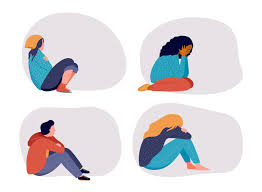Mood disorders, such as depression and bipolar disorder, can affect anyone, including teenagers. These conditions can make it challenging to navigate the ups and downs of life.
This guide aims to help teens better understand mood disorders, their causes, symptoms, and available coping strategies. Remember, you’re not alone, and seeking help is a sign of strength.
What Are Mood Disorders?
Depression
Depression is a common mood disorder characterized by persistent sadness, loss of interest in activities, and feelings of hopelessness.
Symptoms include changes in appetite, sleep disturbances, fatigue, and difficulty concentrating. Depression can impact your daily life, relationships, and overall well-being.
Bipolar Disorder
Bipolar disorder involves extreme mood swings, including depressive episodes and manic episodes.
During manic phases, you may feel overly energetic, impulsive, and have reduced need for sleep. Managing bipolar disorder requires understanding and controlling these mood swings.
What Causes Mood Disorders?
Biological Factors
Genetics can play a role; if your family has a history of mood disorders, you may be more susceptible.
Chemical imbalances in the brain, such as low serotonin levels, can contribute to mood disorders.
Environmental Factors
Traumatic experiences, stressful life events, or chronic stress can trigger mood disorders.
Substance abuse, lack of social support, and unhealthy lifestyle choices can also be factors.
Recognizing the Signs and Symptoms
Symptoms of Depression
- Persistent sadness or irritability
- Loss of interest in activities you used to enjoy
- Changes in sleep patterns (too much or too little)
- Changes in appetite and weight
- Fatigue or loss of energy
- Difficulty concentrating or making decisions
- Feelings of worthlessness or guilt
- Thoughts of self-harm or suicide
Symptoms of Bipolar Disorder
- Depressive symptoms as seen above
- Manic symptoms, including heightened energy, impulsivity, and racing thoughts
- Rapid mood swings
- Impaired judgment and risky behaviors
Seeking Mood Disorders Help as a Teenage
- Talk to Someone
Reach out to a trusted friend, family member, or counselor. Sharing your feelings can provide emotional support.
2 Professional Help
Consult a mental health professional, like a therapist or psychiatrist, who specializes in mood disorders. They can offer diagnosis, treatment options, and guidance.
3 Treatment Options
Treatments may include therapy (cognitive-behavioral therapy, dialectical behavior therapy), medication, or a combination of both.
Support groups can also be beneficial as they allow you to connect with others facing similar challenges.
Mood Disorder Coping Strategies
1 Self-Care
Prioritize self-care activities, like exercise, a balanced diet, and adequate sleep. Engage in hobbies and activities that bring joy and relaxation.
2 Mindfulness and Stress Reduction
Practice mindfulness exercises, such as meditation, deep breathing, and yoga. Manage stress through time management and setting realistic goals.
3 Build a Support System
Maintain strong connections with friends and family. Share your experiences and feelings with those who understand and support you.
4 Educate Yourself:
Learn about mood disorders to better understand your condition and its treatment options. Consider journaling your experiences to track your emotions and progress.
Conclusion
Understanding mood disorders is the first step to managing them. Whether you’re experiencing these challenges or supporting a friend, remember that help is available.
Seek professional guidance, use coping strategies, and build a strong support system to overcome the obstacles these disorders present.
With the right tools and support, it is possible to lead a fulfilling and meaningful life despite the challenges of mood disorders. You’re not alone, and there is hope.

